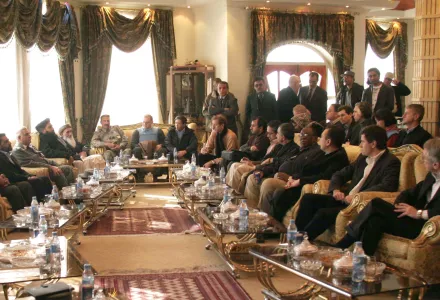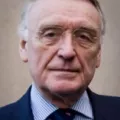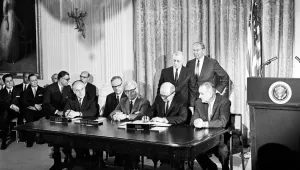
The debate about the effectiveness of the Security Council in creating peace and security in the world is as old as the institution. For many years practitioners and scholars have discussed how factors such as the role of major powers, the unrepresentative structure of its permanent membership, or their veto power affect the Council’s impact on world politics. Such debates are legitimate and profoundly necessary, but in the present international situation a more fundamental challenge has arisen, that threatens the very foundation on which institutions like the UN are built: the assault on multilateralism and on the concept of a rules based international order that relies on cooperation among nations as its guiding norm. Unless that assault is effectively resisted, attempts at reforming or improving this or that international institution have scant chances of success.
The threat emanates from three main sources, which reinforce each other. Firstly, the success of globalization, that has transformed the globe in the post World War II era. Thanks to a consistent effort of nations to eliminate barriers through multilateral agreements and due to new technologies such as the internet, that facilitate communication as well as dramatic improvements in transport technologies, an interconnected world economy has emerged that links national economies in a globe spanning system of production chains, investment, and trade. Although this development produced enormous gains in living standards and a dramatic decrease of poverty in the world the accompanying dislocations also created a new class of losers of globalization, who, re-enforced by growing inequality everywhere engendered a wide spread anti-globalization movement. Even more important, their resentments are exploited by populists who promise easy cures by undoing globalization, the return to strong national boundaries, autonomy and protectionism. The result is a vast challenge to the cooperative multilateralism, which created the post war world economy.
The second threat arises from the equalizing pressure of global consumerism, the requirements of competition and submission to agreed rules in an increasingly integrated world, namely the recourse to the idea of national identity, national control, and nationalism. The proponents of these views, such as the supporters of Brexit or the opponents of TTIP, consider the recourse to national control to be more important than the considerable cost of undoing an achieved state of integration. In many countries this nationalism is energized by a resentment of immigrants in the wake of the world wide surge of refugee waves. Populists exploit these sentiments to challenge a multilateral order with their recourse to political and cultural nationalism.
The third threat originates in the very country that once used its resources, skill and determination to lead in building the post war multilateral order but is now undermining some of its central elements. The Administration of President Donald Trump espouses the previously described challenges to the present order, anti-globalization and recourse to nationalism. It is, of course, of great significance for the evolution of world politics that the most powerful country actively thus undermines the heritage it created. The ideology of “America First”, the policy of withdrawing from multilateral agreements like TPP or the Paris Accord, the imposition of tariffs and the likelihood of intentionally unleashing a trade war, the propagation of a world, in which only competition and rivalry reign rather than cooperation and integration are elements of this assault.
However, for the Security Council to be effective the underlying philosophy of cooperation must be preserved and strengthened. As President Emmanuel Macron put it “Today, more than ever before, we need multilateralism” to deal with world wide threats such as climate change or terrorism, “not through survival of the fittest”.
Kaiser, Karl. “Cooperation Must be Preserved.” METRO U.N., March 14, 2018




